Central Venous Catheter Placement
NEW POSSIBILITIES IN CANCER TREATMENTS
Our physicians use state-of-the-art technology in their fight against cancer. We evaluate every cancer patient and find the most appropriate treatment plan possible, one that offers the best chances for a cure. Using the most advanced interventional radiology (IR) procedures and imaging modalities we treat tumors directly, and avoid many of the drawbacks of more systemic treatments.
Other Cancer Related Services:
RADIOFREQUENCY OF
SPINAL METASTASES![]()
CHEMOEMBOLIZATION/
DRUG ELUTING BEADS![]()
RADIOEMBOLIZATION
(Y-90) FOR LIVER TUMORS![]()
CENTRAL VENOUS
CATHETER PLACEMENT![]()
CRYOABLATION![]()
RADIOFREQUENCY
ABLATION (RFA)![]()
PORT PLACEMENT FOR
CHEMOTHERAPY![]()
PREOPERATIVE EMBOLIZATION
OF TUMORS![]()
MICROWAVE ABLATION![]()
About the procedure
For most of us, most of the time, taking the medicines we need is as simple as swallowing a pill. In certain conditions, however, doctors need to administer larger doses of medications, or deliver them directly into your bloodstream, so they give you an injection or install a temporary intravenous (IV) tube. The problem with this for long-term care is that getting too many injections or using a regular IV line can damage your veins.
At Comprehensive Integrated Care Centers, we specialize in a procedure called Central Venous Catheter Placement, which can alleviate the problem. A central venous catheter (CVC) is a tube placed on a more permanent basis in one of the large veins in the neck, chest, or groin. The CVC is then used to administer the medications you need.
Why it’s done
Patients in long-term care often require long, repeated sessions of intravenous treatment. Ongoing therapy can cause the veins to collapse due to the damage caused by repeated injections or temporary IV tubes. CVCs eliminate these problems, and allow your doctors to administer larger amounts of medications or fluids than would be possible with the other methods. CVCs can be safely left in place for weeks or even months if necessary.
What to expect
Preparation: Prior to your procedure, your CiC physician may perform blood tests to determine how well your kidneys are functioning and whether your blood clots normally. You should tell your doctors about any medications you are taking, including herbal supplements, and whether you have any known allergies. You may be advised to stop taking aspirin, NSAIDs, or blood thinners for several days before the procedure. If you are pregnant, be sure to inform your doctors so that they can use X-ray procedures that will minimize radiation exposure to the baby. You may be advised not to eat for several hours before the procedure, and you should plan to have someone available to drive you home afterwards.
During: After determining the most appropriate site for the catheter insertion, the site will be cleaned and draped. Your doctor will then use ultrasound and x-ray guidance to place the central venous catheter. The end of the catheter will be sutured to your skin. Typically, the stitches do not need to be removed until the catheter is taken out at the conclusion of your treatment.
After: After the procedure, you will be asked to lie flat on your back in a recovery room for a while. The next day you can resume your normal activities, but you should not engage in any kind of strenuous activity for several days. Your doctor will give you instructions on how to care for your incision and new CVC device. For the first week, it is important to keep the catheter site clean and dry, so follow your doctor’s instructions for how to do this. You may be instructed not to shower for several days, or to wrap plastic wrap around the area before showering until the wound has time to heal. You should not take baths or go swimming until you are instructed to do so.
Getting the best cancer care
Comprehensive Integrated Care’s experienced technologists and leading physicians will arrange and administer your central venous catheter placement and be with you throughout the whole process.
